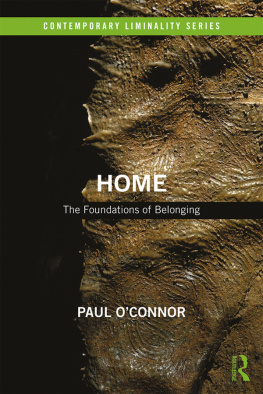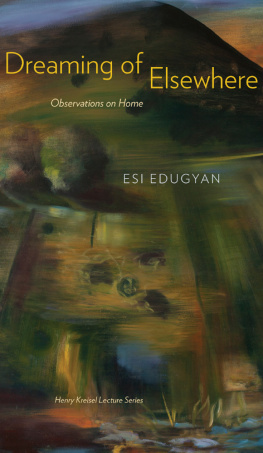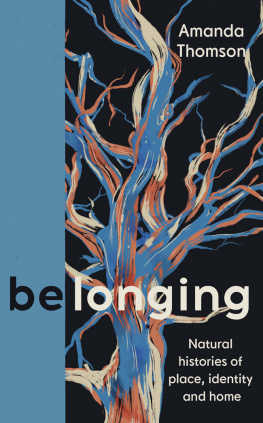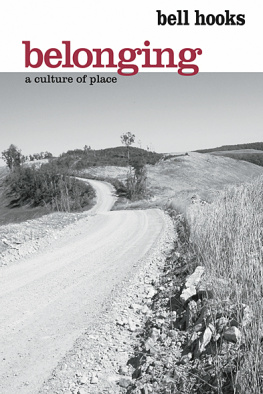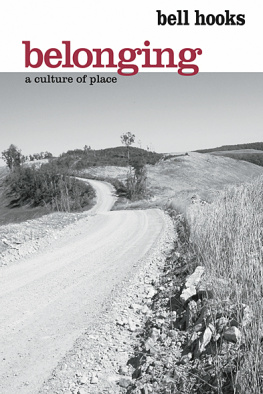Questions of home and belonging have never been more topical. Populist politicians in both Europe and America play on anxieties over globalisation by promising to reconstitute the national home, through cutting immigration and taking back control. Increasing numbers of young people are unable to afford home-ownership, a trend with implications for the future shape of families and communities. The dominant conceptualisations of home in the twentieth century the nation-state and the suburban nuclear household are in crisis, yet they continue to shape our personal and political aspirations. Home: The Foundations of Belonging puts these issues into context by drawing on a range of disciplines to offer a deep anthropological and historical perspective on home. Beginning with a vision of modernity as characterised by both spiralling liminality and an ongoing quest for belonging, it plumbs the archaic roots of Western civilisation and assembles a wide body of comparative anthropological evidence to illuminate the foundations of a sense of home. Home is theorised as a stable centre around which we organise both everyday routines and perspectives on reality, bringing order to a chaotic world and overcoming liminality. Constituted by a set of ongoing processes which concentrate and embody meaning in intimate relationships, everyday rituals and familiar places, a shared home becomes the foundation for community and society. The Foundations of Belonging thus elevates home to the position of a foundational sociological and anthropological concept at a moment when the crisis of globalisation has opened the way to a revaluation of the local.
Contemporary Liminality
Series editors:
Arpad Szakolczai
University College Cork, Ireland
Series advisory board:
Agnes Horvath
University College Cork, Ireland
Bjrn Thomassen
Roskilde University, Denmark
Harald Wydra
University of Cambridge, UK
www.routledge.com/sociology/series/ASHSER1435
This series constitutes a forum for works that make use of concepts such as imitation, trickster or schismogenesis, but which chiefly deploy the notion of liminality, as the basis of a new, anthropologically focused paradigm in social theory. With its versatility and range of possible uses rivalling and even going beyond mainstream concepts such as system, structure or institution, liminality is increasingly considered a new master concept that promises to spark a renewal in social thought.
In spite of the fact that charges of Eurocentrism or even moderno-centrism are widely discussed in sociology and anthropology, it remains the case that most theoretical tools in the social sciences continue to rely on taken-for-granted approaches developed from within the modern Western intellectual tradition, whilst concepts developed on the basis of extensive anthropological evidence and which challenged commonplaces of modernist thinking have been either marginalised and ignored, or trivialised. By challenging the assumed neo-Kantian and neo-Hegelian foundations of modern social theory, and by helping to shed new light on the fundamental ideas of major figures in social theory, such as Nietzsche, Dilthey, Weber, Elias, Voegelin, Foucault and Koselleck, whilst also establishing connections between the perspectives gained through modern social and cultural anthropology and the central concerns of classical philosophical anthropology, Contemporary Liminality offers a new direction in social thought.
Titles in this series
3 Walking into the Void
A Historical Sociology and Political Anthropology of Walking
Agnes Horvath and Arpad Szakolczai
4 Home: The Foundations of Belonging
Paul OConnor
First published 2018
by Routledge
2 Park Square, Milton Park, Abingdon, Oxon OX14 4RN
and by Routledge
711 Third Avenue, New York, NY 10017
Routledge is an imprint of the Taylor & Francis Group, an informa business
2018 Paul OConnor
The right of Paul OConnor to be identified as author of this work has been asserted by him in accordance with sections 77 and 78 of the Copyright, Designs and Patents Act 1988.
All rights reserved. No part of this book may be reprinted or reproduced or utilised in any form or by any electronic, mechanical, or other means, now known or hereafter invented, including photocopying and recording, or in any information storage or retrieval system, without permission in writing from the publishers.
Trademark notice: Product or corporate names may be trademarks or registered trademarks, and are used only for identification and explanation without intent to infringe.
British Library Cataloguing-in-Publication Data
A catalogue record for this book is available from the British Library
Library of Congress Cataloging-in-Publication Data
Names: OConnor, Paul, 1978 author.
Title: Home : the foundations of belonging / Paul OConnor.
Description: Abingdon, Oxon; NewYork, NY : Routledge, 2018. | Series:
Contemporary liminality | Includes bibliographical references and index.
Identifiers: LCCN 2017033829 | ISBN 9781138633148 (hbk) |
ISBN 9781315207865 (ebk)
Subjects: LCSH: Belonging (Social psychology) | Home.
Classification: LCC HM1033 .O283 2018 | DDC 392.3/6dc23
LC record available at https://lccn.loc.gov/2017033829
ISBN: 978-1-138-63314-8 (hbk)
ISBN: 978-1-315-20786-5 (ebk)
Typeset in Times New Roman
by Apex CoVantage, LLC
For ine
Contents
Guide
I would like to take this opportunity to thank those who helped and supported me in the course of writing this book, and without whose encouragement and assistance it would not have been completed.
Special thanks are owed to Professor Arpad Szakolczai, who supervised the writing of my PhD thesis at University College Cork (UCC). My intellectual debt to him is clear from the following pages. His work has been a constant source of stimulation and inspiration, as well as an example of what social theory can be, but all too often is not an effort to grapple with the fundamental issues which inspired the founders of the discipline, and to promote meaningful forms of social inquiry. His moral support throughout the lengthy process of research and thought which led to this book, as well as his forensic reading of my work, have been an immeasurable resource.
My thanks are also due to Kieran Keohane, for his encouragement and support over the past seven years; to Feilm O hAdhmail, for his assistance in returning to academic life after a decade-long hiatus; to my fellow veterans of the GREP programme at UCC, for their companionship on the journey; to my colleagues in the Department of Sociology at UCC, in particular Niamh Hourigan, Ger Mullally and Jerry OSullivan, for their advice and support; to the editors of the journal International Political Anthropology , and the organisers of the various IPA conferences and workshops I have attended, which have been a regular source of ideas and intellectual stimulation; to my colleagues in the Cleaner Production Promotion Unit (CPPU), especially Christine Gaffney and Breffni Lennon, for their friendship over the past few years; and to Niall Dunphy, Director of the CPPU, for facilitating me in taking the time needed to complete this book.

